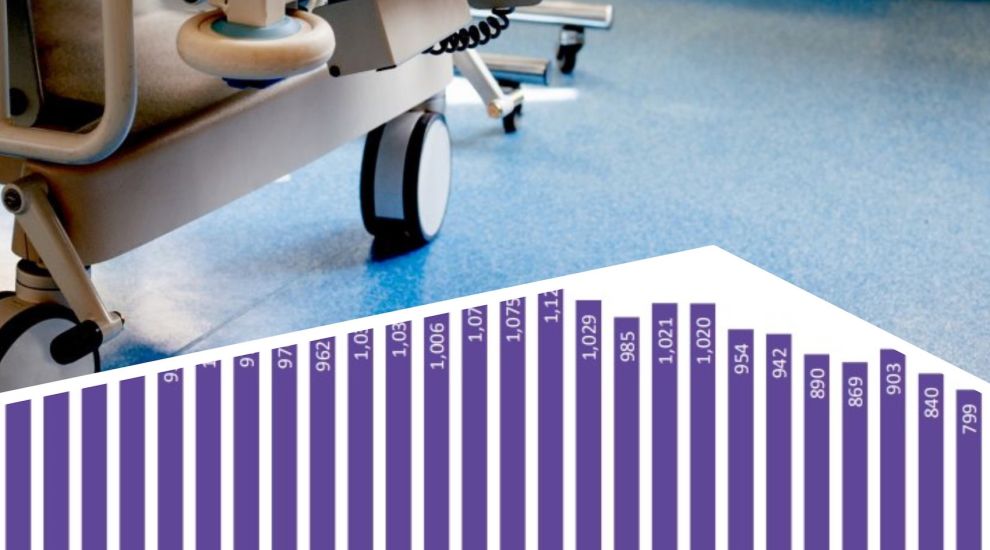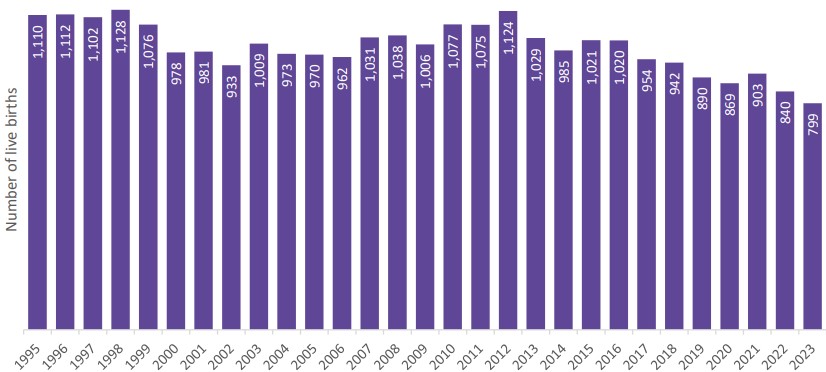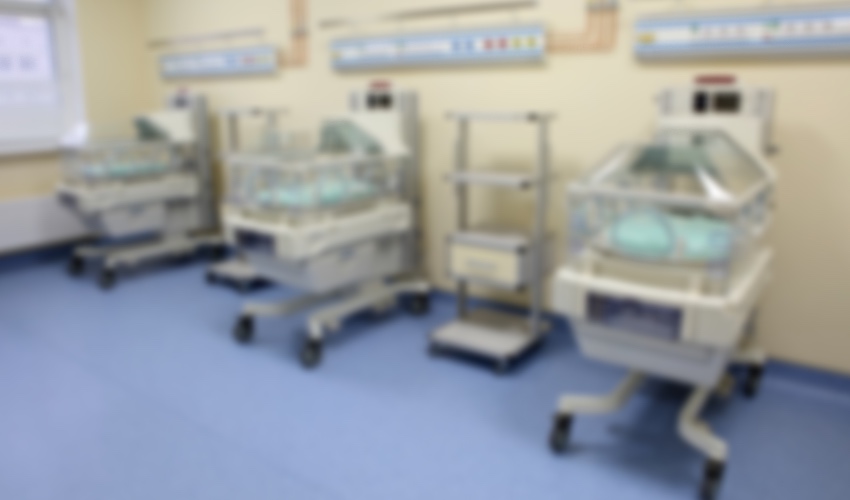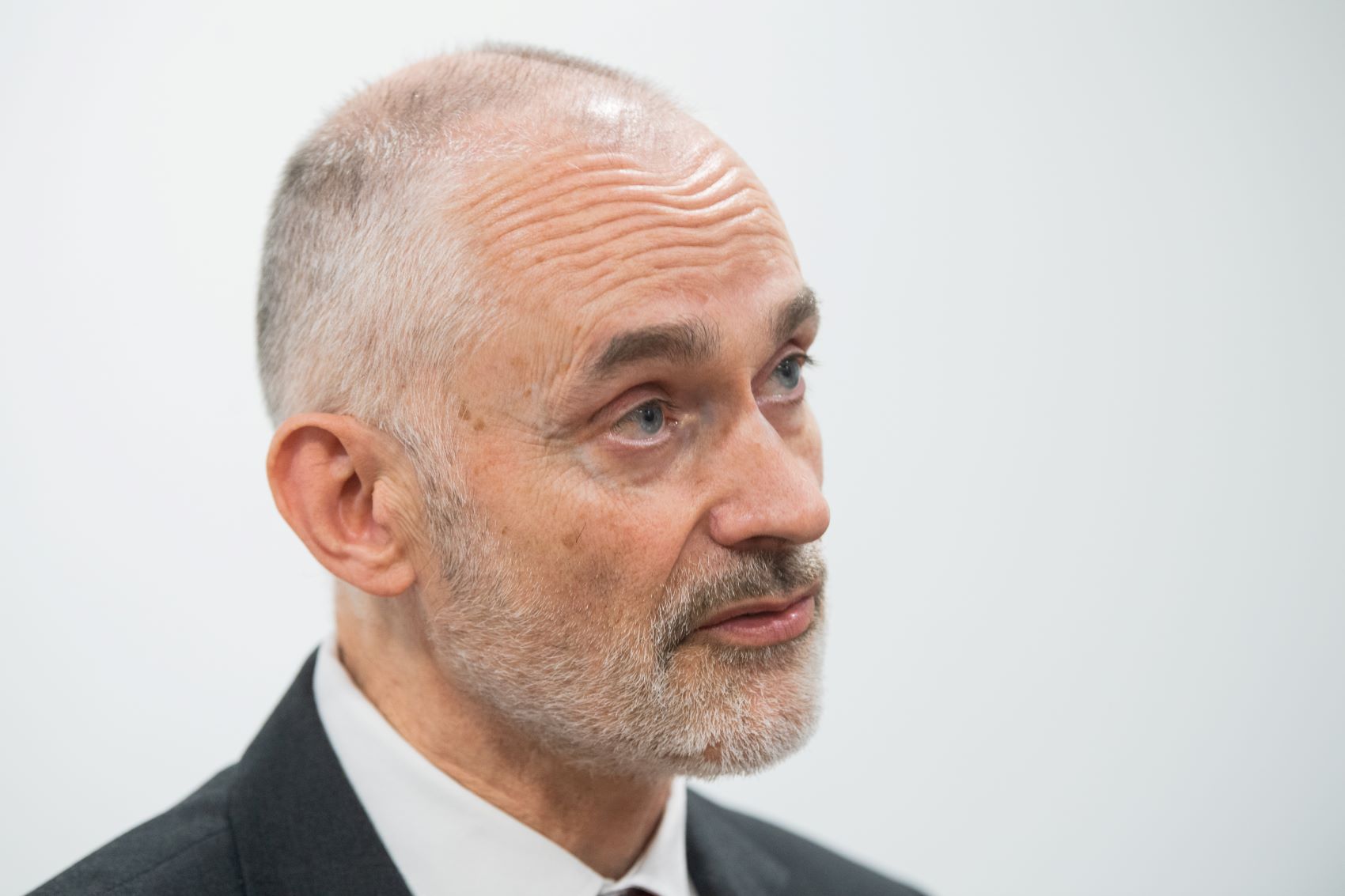


The proportion of women having a baby in their 20s has nearly halved in recent years, according to a new report which shows that Jersey's birth rate is continuing to decline.
The figures were included in the Births and Breastfeeding Profile report for 2023, which was published this morning by Public Health.

Pictured: The number of live births in Jersey each year from 1995 to 2023. (Public Health)
Express took a look at the numbers...
2023 saw the lowest number of live births (799) for Jersey recorded since 1995.
Of those, 372 babies (47%) were girls and 427 (53%) were boys.
The overall figure was 5% lower than in 2022 (840), and continues the decline in births observed in the island since the latest peak in 2012 (1,124).
Jersey's birth rate for 2023 (7.7 live births per 1,000 total population) is also lower than that of England and Wales, where it stood at 10.1 live births per 1,000 total population in 2022.
Births among women aged 20 to 29 has declined from 42% to 24% from 2021 to last year.
The general fertility rate, which represents the number of live births in a year per 1,000 women aged 15 to 44 years old, was 43 in Jersey in 2023, which is lower than England and Wales where the rate was 52 in 2022.
During 2021 to 2023, 42% of all live births to Jersey resident mothers were delivered by C-section. This compares to 35% of all deliveries in England from 2021 - 2022.
In 2023, 63% of babies were being breastfed six to eight weeks after birth (42% exclusively breastfeeding, 21% mixed feeding), which is similar to the previous year.
The stillbirth rate in Jersey for the latest three-year period was 3.5 per 1,000 births, which is lower than England's figure of 3.9.
Gynaecologists have previously warned that Jersey's high cost of living is contributing to delayed parenthood – potentially leading to increased infertility rates and demographic challenges.
According to the Jersey Health Profile for 2022, the average age of new mothers in the island was 33 – compared to a UK average of 30.

Pictured: Last year saw the lowest number of live births for Jersey recorded since 1995.
The latest figures go hand-in-hand with population data released by Statistics Jersey last year, which showed that the difference between births and deaths narrowed considerably over the last decade.
Public Health Director, Professor Peter Bradley, explained: “We have seen a steady decline in the number of babies born in Jersey over the last decade.
"There are many factors that can have an effect on the birth rate including personal preference, cost of living, and migration."
He added: "We also know that islanders have good levels of sex and sexual health education which can reduce the number of unplanned pregnancies.”

Pictured: Public Health Director Professor Peter Bradley cited migration and the cost of living as some of the factors that can influence birth rate.
Former Chief Minister Kristina Moore last year spoke of the long-term economic challenges that Jersey faces with its changing demographic.
Express has contacted Deputy Morel for comment regarding the latest birth rate figures.
Comments
Comments on this story express the views of the commentator only, not Bailiwick Publishing. We are unable to guarantee the accuracy of any of those comments.